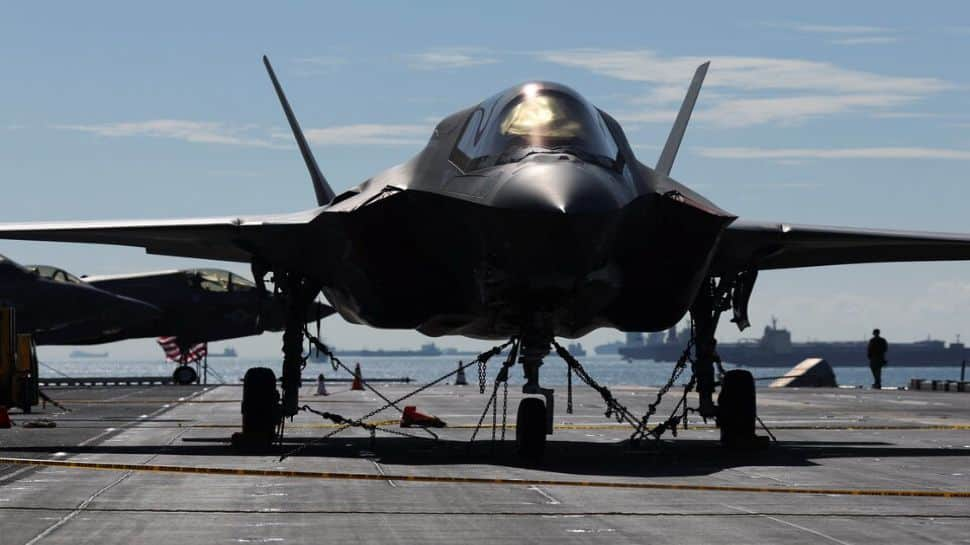The F-35 Lightning II, developed by Lockheed Martin, stands as the most advanced and secretive stealth fighter jet in the world. Since its production began in 2006 and it entered service with the United States in 2015, the F-35 has symbolized cutting-edge military technology. Conceived in the 1990s to replace aging fighter aircraft such as the F-16, its design goal was to create a versatile fighter capable of handling both air combat and ground-strike missions within a single sortie. The program has since evolved into the most expensive weapons project in Pentagon history, with three variants priced between approximately Rs 700 crore and Rs 944 crore each, and operating costs around Rs 31.20 lakh per flight hour. This significant investment underlines the unique and influential role the F-35 plays in modern airpower.
Despite its popularity and demand worldwide, the United States maintains extremely strict rules governing who can acquire and operate the F-35. Washington shares this technology only with a select group of allies that pass rigorous security and political vetting. The jet’s advanced stealth capabilities and sensitive technologies make it imperative for the U.S. to carefully control its distribution, ensuring that it remains secure and that American strategic interests are preserved.
One of the firmest rules in place is the prohibition of the F-35 in any country that hosts the Russian S-400 air defense system. This policy is grounded in concerns that the presence of the Russian S-400 could compromise the F-35’s sensitive technology through electronic surveillance or intelligence gathering. Turkey’s experience illustrates the consequences of ignoring this rule. Although a NATO member with strong military ties to the United States, Turkey purchased the S-400 system from Russia despite repeated warnings from Washington. As a result, Turkey was expelled from the F-35 program. The purchased S-400 system, valued at $2.5 billion, has not been deployed in five years and remains stored away, unused. Recently, reports suggest Ankara is reconsidering its decision and contemplating a return to the F-35 program, recognizing the significant missed opportunity.
Another critical factor influencing F-35 sales is the presence of Chinese technology and influence, especially concerns surrounding Huawei’s role in 5G infrastructure. The United States has banned Huawei from its own 5G networks over fears of espionage and data surveillance. Allies like Australia, New Zealand, and Britain have taken similar precautions by restricting Huawei’s access. These concerns have led to debates within the U.S. government about pausing the deployment of the F-35 in countries with Huawei infrastructure due to the risk that sensitive data and communications could be intercepted. For instance, this issue delayed the sale of 50 F-35A jets to the United Arab Emirates, highlighting how geopolitical and technological considerations intersect with defense policy.
The U.S. also maintains a staunch legal commitment to preserving Israel’s “qualitative military edge” in the Middle East. This principle governs all defense deals in the region and ensures that Israel retains superior military technology compared to its neighbors. Israel currently operates 75 F-35A jets under this framework. Consequently, other Arab nations like Qatar, the UAE, and Egypt remain excluded from receiving the F-35 to maintain this strategic balance. However, a new chapter may be unfolding as Saudi Arabia seeks to enter the circle of nations permitted to acquire the F-35, a move that has stirred debate and concern among U.S. defense officials.
Security concerns also extend to espionage risks. Taiwan, for instance, faces intense infiltration from Chinese spies, with past estimates suggesting around 5,000 individuals working as Chinese operatives on the island. Given this level of threat, the U.S. has refrained from selling the F-35 to Taiwan to avoid the risk that its sensitive technology could fall into adversarial hands.
Recently, the proposal to sell 48 F-35 fighter jets to Saudi Arabia has gained momentum, driven by President Donald Trump’s administration. Trump has publicly endorsed the deal, emphasizing Saudi Arabia as a strong ally and justifying the sale as beneficial for the partnership. However, the Pentagon and senior defense officials have expressed unease. The Defense Intelligence Agency produced fresh assessments warning that transferring the F-35 to Riyadh could risk sensitive technology leaking to China via Saudi channels. Experts have also highlighted the possibility that joint military exercises between Saudi Arabia and China could provide opportunities for Beijing to study the F-35’s stealth features, software behavior, and

